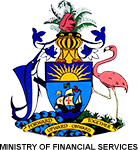The dream of community forestry in the Amazon: An interview with Rodrigo Botero García
21 Mar 2020
Managing forests sustainably involves putting a system in place that is ecologically sound, economically viable and socially responsible. This is essential for the preservation of the Amazon's forests and the goods and services it provides, as well as for improving the social and economic well-being of people who live in the region. Community forest management is an approach that supports communities through various co-management and community-based regimes to use, manage, and conserve forests. The approach not only generates environmental benefits including biodiversity conservation and climate change mitigation but also improves community governance and social cohesion. In celebration of the International Day of Forests on March 21, the Amazon Sustainable Landscapes Program (ASL) team interviewed Rodrigo Botero García, a recent recipient of “The Best Leaders of Colombia” award (Mejores Líderes de Colombia) for his work preventing deforestation in the Amazon, fostering community-led sustainable development and promoting the expansion of Chiribiquete, now the largest tropical rainforest national park in the world. After 30 years of work in institutions including the National Natural Parks of Colombia agency, in 2010 Botero founded the Foundation for Conservation and Sustainable Development (Fundación para la Conservación y el Desarrollo Sostenible – FCDS). Botero—often surveilling the Colombian Amazon by plane to monitor deforested patches in the forest—believes in the possibility of sustainable development in the Amazon and has developed an innovative system that allows the FCDS to analyze socio-environmental conflicts, generate early warnings, monitor deforestation, and model scenarios in the region; all of which is then packaged and brought to the hands of the policymakers to take action on. In July 2019, more than 20 participants from Brazil, Colombia, and Peru participated in an ASL-sponsored exchange led by Botero and his team to learn how local communities in Petén, Guatemala, that were living in conflict zones 25 years ago are now protecting more than 500,000 hectares of forest through community concessions granted by the government. (Watch the video of the community forestry study tour here: Community Forestry – Selva Maya and read the report (in Spanish) here: Retos y Lecciones Aprendidas – Challenges and Lessons learned). A key result from this exchange is the interest of high-level representatives within the Colombian government to learn more about the Guatemala forest concession process and identify its applicability at the policy level, an effort Botero will lead and the ASL will support.
Read full article at Worldbank

